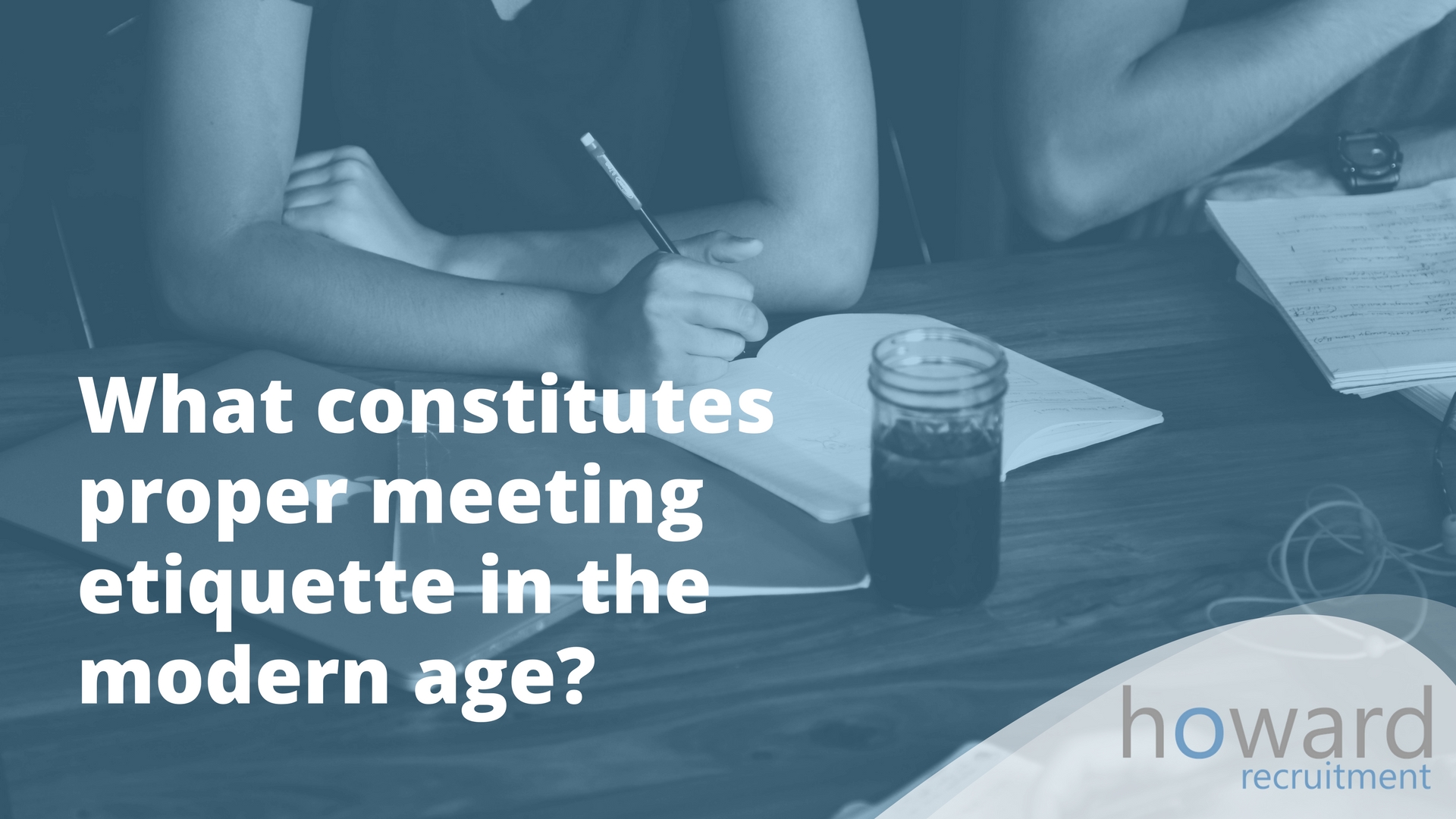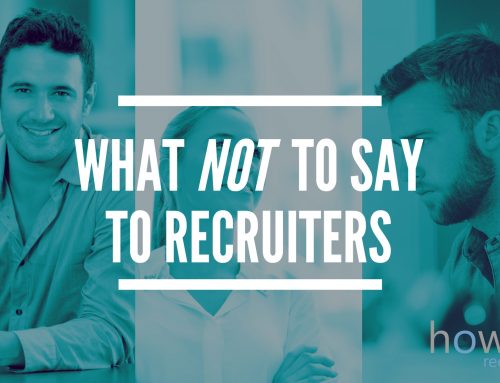Given the rush of our daily work lives, sometimes people forget the basic etiquette and rules that are required when attending meetings/interviews. But in this modern age what does proper meeting etiquette look like? Below are some of the changes I’ve observed during my 20+ years of recruitment, but am I being ‘old fashioned’?
Eye contact during video calls
Something that I find very off-putting is when I’m having a meeting over Skype or Facetime and the client or candidate is not maintaining eye contact. Does the digital window of our much depended on laptops forgive us the courtesy of proper interaction? And where should you look? You can look at the laptop’s built-in camera whereby your contact will see you looking directly at them. Or do you look at their image on the screen?
Background setting for video calls
A good move is to find a background that best reflects whatever skills or expertise you’re trying to convey with your call. It should be neat and tidy as if it were a business meeting – you don’t have a business meeting on your bed or in a kids toy room!
Bottle of water versus a glass of water
Should it be okay to pull out a bottle of water from your bag? And should you drink the water from the bottle or request a glass? I personally think drinking from a glass is more polite, but I know the younger generation such as millenials wouldn’t think twice about it – I’m genuinely unsure of what is polite.
Should we take meeting notes in a notebook, tablet or laptop?
Personally, I feel using a tablet to take notes is perfectly fine as you can still easily maintain eye contact. However using a laptop while taking notes could create a wall between you and the person talking. And it’s easier to get distracted with all those browsing and other files in your computer. Interestingly my business partner prefers traditional note taking, as he feels he is better able to converse and engage with his candidates & clients. The key is whatever you use, be it a notebook or tablet, it should not become a distraction.
How should you communicate if you’re running late?
Is an SMS text message appropriate if you’re running late? If it was someone you are not familiar with I would say no.
Not only is it appropriate to call, it is faster… simply call your contact whom you’re meeting with to explain you’re going to be late and why. Should they not pick up the call you leave a voicemail, sure they may not get the voicemail in time but it shows your considerate of their time and gives you professional credibility.
Ultimately, it depends on the relationship you have with the other person. Millennials find it perfectly acceptable to text, is this the way forward and am I being out of date?
Bringing your own coffee into an interview in a takeaway cup – definitely a no-no!
Taking phone calls during meetings
Is it appropriate to say at the start of the meeting, “I’m expecting a call and may step out to take it”? Obviously, taking a call in the middle of a meeting without notifying the other person earlier is clearly rude, but if you preempt the call does that make it ok?
I was participating in a client panel interviewing a candidate whereby one of the 3 clients had to step out to take a call. They duly returned a short time later but the candidate later confessed that the dynamic of the interview had changed and as a result didn’t flow as well. Clearly the absence of one of the panelists made the candidate feel uncomfortable, surely they should deserve the courtesy of an engaged panel?
How should you introduce yourself?
I’ve noticed for a while people are introducing themselves using their first name only. My belief is when meeting a new person in a business setting you should always introduce yourself using your full name. Now, I know in this wonderfully multicultural society of ours, some of us have difficult surnames (myself included!) which may be hard for someone else to pronounce so maybe first name only is acceptable. But surely the very first time you are meeting someone you should introduce yourself formally?
Business Fashion – what constitutes business attire and interview attire?
Someone appears to be almost over dressed (particularly a female) if wearing a suit with matching jacket and skirt/trousers. Interviewers want to see someone who would fit in culturally to their work environment. So if it’s a business casual working environment, will a candidate in a suit appear over dressed? Are jeans just an accepted meeting attire, even if you are meeting with a client? When ripped jeans are the fashion norm, does this translate into a business casual environment, where typically jeans are considered appropriate attire?
What do you think makes up modern meeting etiquette? We’d love to hear your thoughts.





